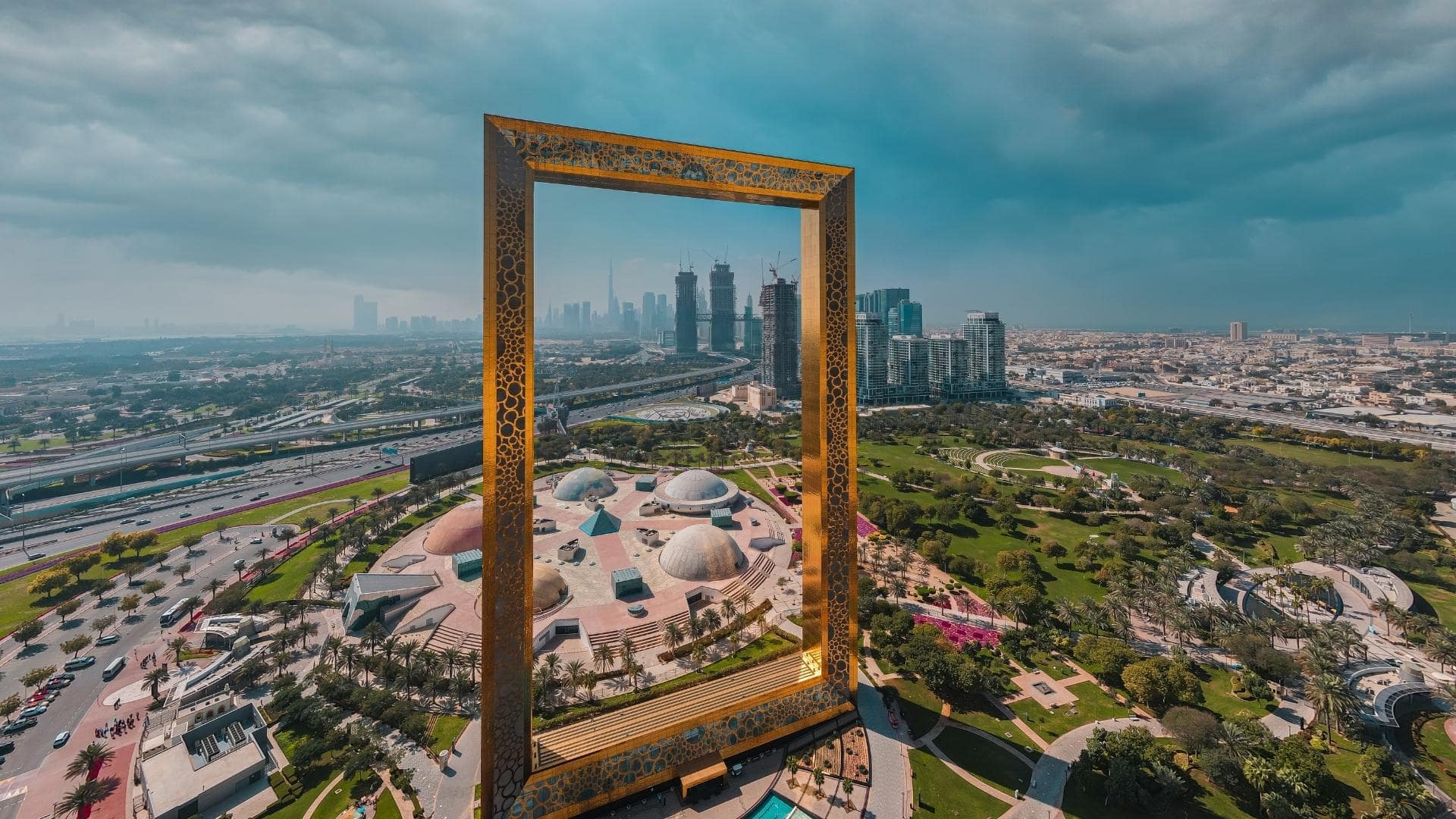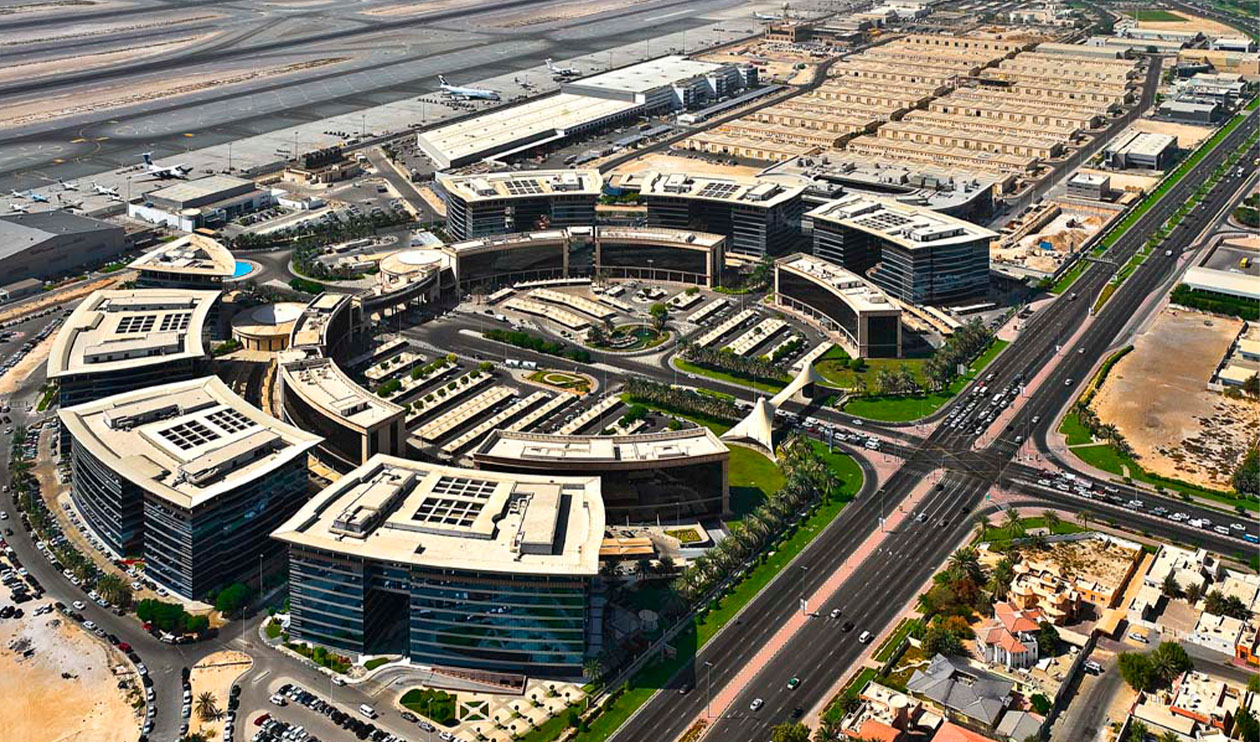Understanding the model for success for economic zones
August 09, 2025

Dubai is a prime business location for people worldwide. The unparalleled popularity of Dubai in recent years has made the emirate a highly influential destination for investors and those seeking financial opportunities.
Establishing free trade zones throughout the UAE was one of the most prudent initiatives undertaken by the Emirati government to diversify the economy and attract more foreign investors to the UAE.
What is a free zone?
A free trade zone is an economic area run by its own rules and regulations that do not apply to the mainland or any other territory.
The first free zone in the UAE was founded in 1985, known as the Jebel Ali Free Zone. Today, there are more than 40 free zones all across the UAE.
The free zones in Dubai are industry-specific. They provide infrastructure and laboratories as part of a supportive environment for start-ups and renowned tech companies.
Media-specialized free zones in Dubai are designed to support companies operating in the fields of advertising, publishing, film production, broadcasting, and entertainment. These zones provide specialised facilities for the unique needs of the media sector.
Dubai free zones also cater to healthcare platforms. They offer advanced healthcare infrastructure and research facilities to medical institutions, clinics, and pharmaceutical companies.
Zones based on Logistics and manufacturing offer warehousing and logistical support for companies engaged in import, export, and manufacturing operations. Some Dubai free zones are also focused on financial services, including banking, insurance, and investment.

How Dubai free zones operate
The free zones in Dubai offer 100% foreign ownership along with 100% repatriation of capital and profits.
They also offer 100% free transfer of funds, with no foreign exchange controls. It allows you 24/7 operating flexibility.
Plenty of office spaces are available for sale or lease. Not to mention, the immigration licensing procedures are simple and less complicated.
Free zones also allow exemption from all import and export duties. Since Dubai is a business hub for many, it provides a multicultural workforce.
There are various licenses available, including industrial, professional, e-commerce, freelancing, tourism, and commercial licenses. The number of permits a free zone company can obtain depends on the specific regulations of the relevant authority.
An industrial license is required for companies involved in the production of goods and products.
A professional license is needed for professional services, including consulting, legal services, and creative industries. Free zones welcome independent contractors by providing a license for freelancers.
The e-commerce license allows the online sale of goods. The tourism license is offered to tourism businesses such as hotel operators and travel agencies. The commercial license is used for various import and export activities.
However, choosing the location should be well thought out. For example, if you build a company based on logistics, you would focus more on free zones located near a seaport or airport, such as Jazba, Davza, or Kizad.
The IFZA free zone community is notable for its diverse range of businesses, including lifestyle coaching, management consultancy, e-commerce, online trading, and service-based enterprises.
Most free zones offer VIP services regarding visa processing. The only issue is that not every person gets accepted for a visa, let alone a VIP facility. A criminal record or previous issues in entering the UAE can be a problem.
The Dubai authority may also check records in any other countries that they have previously visited.
According to Ben Hopper, client manager at IFZA Zone, there are a handful of nationalities that the authorities have designated as mid-risk or high-risk, who are suffering due to war, political issues, or may have current issues with the UAE government.
It’s challenging to provide them with VIP visa processing since there’s a lower chance for those nationalities to obtain a visa.
Overall, Dubai has significantly higher success rates for visas and licenses compared to the northern emirates. It is because Dubai is more lenient in who they let in compared to Abu Dhabi and other emirates.
Setting up a business in the free zone
Two types of legal entities can be established in a free zone: Free Zone Company (FZCO) and Free Zone Establishment (FZE).
An FZCO is required to have at least one director and a secretary. FZCO can accommodate more than 50 shareholders. This is a good option for businesses with large-scale ownership.
Under an FZE, the company is owned by a single shareholder, whether that is an individual or a corporate entity. Due to FZE’s singular ownership perspective, it is preferred by entrepreneurs and small business owners seeking a simple setup to nurture their businesses while benefiting from the facilities of a free zone ecosystem.
Initially, businesses within the free zone could not operate on the mainland; they had to either conduct business in the free zone or internationally.
Nevertheless, they can run businesses on the mainland through 3rd party companies.
For instance, if entrepreneurs from free zones want to sell food or beverage products on the mainland, they must first establish a trade agreement between the mainland and the free zone authority.
Then they will have to use a third party to deliver the product or service, whether that’s a courier service, Aramex, or Kareem boxes. The goods can then be found in stores all over the mainland in the UAE.
Service-based businesses can reach the mainland as long as they operate from the free zone. That’s why the majority of these companies operating in free zones apply b2b services.
You can also establish a remote company in Dubai with the assistance of a professional partner. Establish the company and apply for a visa from anywhere in the world.
You may need to visit Dubai for a brief period to complete the medical testing and set up your Emirates ID. It may take 3-5 business days in Dubai altogether to set up the company under its free zone. The only times you need to visit Dubai are for the medical test and to obtain the Emirates ID.
Most people enjoy the flexibility of a Dubai visa, as it allows them to visit or leave the country at any time. An employment visa or an investor visa requires just two visits a year to hold residency. It creates opportunities for virtual office setups or flexi-desk options.
For example, under IFZA, one can use a third-party country to manufacture the goods, and then utilize their company here in Dubai as a base.
However, some other free zones may require maintaining a physical office space, which can lead to additional administrative costs.

Rules, costs, and others
The Dubai free zone companies are required to follow the rules and regulations set by the Free Zone Authority.
The initial requirements for the free zones include completing the registration process, obtaining a license, and obtaining a visa. For Dubai residents, an Emirates ID and a UAE residence visa will also be required.
The authority may also ask for a detailed business plan and financial plan for the company. Then, the Dubai Free Zone Authority will initiate the lease agreement. The rules can vary for each free zone, as each zone has its own specific requirements.
Setting up a business in a Dubai free zone can be costly. According to Ben Hopper, for IFZA, the initial cost for setting up a company under their authority requires a minimum expense of nearly fifteen thousand AED for a company license, followed by two thousand AED for an establishment card and three thousand seven hundred fifty AED for a 2-year residence visa.
Apart from these costs, an individual also requires a medical test and an Emirates ID for a business establishment. These primary expenses don’t include costs for office space rentals and other administrative fees.
There are agencies available that work with entrepreneurs to establish new companies in the heart of Dubai. The agents deal with industry experts to assist the newcomers with proper documentation and information.
The first free zone in the world was established over 60 years ago. Today, more than 100 million employees operate in various free zones worldwide.
A report from the OECD reveals that free zones have generated exports exceeding $3.5 trillion in a single year, accounting for approximately 20 percent of global goods trade.
Special economic zones in Bangladesh
Bangladesh has also established several economic zones (EZs) and export processing zones (EPZ). These zones have been established with similar objectives to those in Dubai.
The economic zones are managed by the Bangladesh Economic Zones Authority (BEZA), and the export-based zones are authorized by the Bangladesh Export Processing Zones Authority (BEPZA).
Artificial intelligence, blockchain, and other emerging technologies are impacting the way businesses operate. These global changes can lead to a massive transformation in how Bangladesh utilizes its economic zones and collaborates with different international business platforms.
We need to focus on technology-driven innovation and create economically efficient trade zones, while also nurturing the existing economic zones.
Investors in EZs and EPZs typically enjoy tax benefits, which include tax holidays, duty-free import facilities, and the repatriation of profits.
These zones also benefit from a generalized system of preferences (GSP), which affords preferential access to specific markets. Additionally, the economic zones benefit from quotas and duty-free access to the European Union.
However, EPZ/EZ investors in Bangladesh do not receive certain benefits related to domestic trade. EPZs are designed to focus on export-based production, which results in limited access to the local market. There are also issues with using non-resident foreign currency deposit (NFCD) funds in EPZs.
If the incentives can be designed in a similar pattern to the free zones in Dubai, the economic zones will be able to reach international standards and attract more investment.
With the rise of online trading and e-commerce, Bangladesh needs to adapt to online retail and logistics services.
Pushing the technical industry forward can result in the establishment of an IT hub in the heart of Bangladesh.
Dubai’s free zones offer a thriving ecosystem where numerous emerging ideas coexist.
If we can create a business environment that lets the youth of our country start their businesses and enjoy the abundance of facilities, then we can establish a strong presence for Bangladesh in the global market.
Most Read

Electronic Health Records: Journey towards health 2.0

Making an investment-friendly Bangladesh

Bangladesh facing a strategic test

Understanding the model for success for economic zones

Bangladesh’s case for metallurgical expansion

How a quiet sector moves nations

A raw material heaven missing the export train

Automation can transform Bangladesh’s health sector

A call for a new age of AI and computing
You May Also Like
